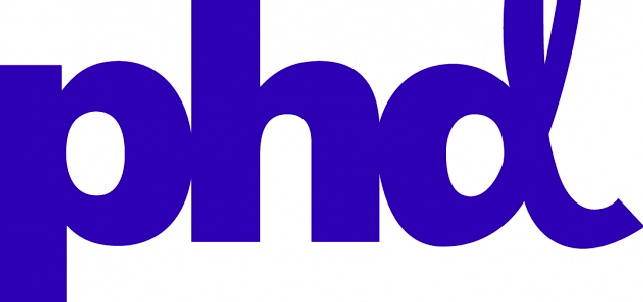Inside PHD Canada’s gamified approach to media planning
by Christine Wong — Mar 11 '14
by Christine Wong — Mar 11 '14

Gamification is helping PHD Canada get its groove back.
After a three-year winless streak at the Strategy Magazine awards, the marketing and communications agency picked up silver in the 2013 media agency of the year category. PHD was also the only Canadian firm to win gold at the 2013 Internationalist Awards for Innovative Digital Solutions in New York. Topping it off, industry bible Adweek named PHD Worldwide its 2013 agency of the year. (Based in Toronto and Montreal, PHD Canada is a division of UK-based PHD Worldwide.)
The kudos come less than 18 months after PHD’s parent company, Omnicom Media Group, got gamified. After a two-year development process (documented in the new book Game Change), Omnicom launched Source. It’s an internal platform used by all Omnicom media planners – including those at PHD Canada – to create media strategy and content for clients. Source is unique from other media planning platforms because it’s gamified, according to company executives.
“It’s kind of like a planning platform on steroids,” PHD Canada’s CEO Fred Forster told us in an interview at the recent DX3 conference in Toronto. “All we’ve done is taken that platform and upped the game, so to speak, by gamifying it.”
As PHD Canada’s senior VP Rob Young explained in a DX3 presentation, all 2,500 employees throughout Omincom’s 76 divisions worldwide are rewarded with points for every new idea they post on Source.
“If you create an in-depth (media) plan very well, you move up the game ladder. And if you contribute to the work others are doing on their plans, you move up the game ladder,” said Young, who is also PHD Canada’s director of insights and analytics.
Point totals and rankings for each office and employee are posted on a global company-wide leader board. Since staff can post ideas for any Omnicom campaign worldwide, it’s an opportunity for cross-border collaboration – and friendly competition – that didn’t exist before.
“There’s the ability to compete on a country by country level, almost like the Olympics,” said Young. (PHD’s Canadian contingent ended 2013 in a respectable third place overall.)
Although staff can’t score extrinsic rewards like cash or Caribbean trips, there “are intrinsic rewards,” said Young. “(It’s) the fact that people are receiving recognition from around the world from their peers and their employers.”
Are there any tangible metrics that demonstrate the ROI impact of Source at Omnicom, like revenue, contract wins or client and sta retention? Forster says it’s still too early to drill for hard evidence of Source’s impact less than 18 months after the platform’s launch.
But top Omnicom executives did credit Source with helping PHD Worldwide land a mega-contract at Unilever in late 2012. Plus, the raft of awards mentioned at the start of this story also flowed PHD’s way after Source was launched. (No word yet on whether Source played a role in Omnicom’s rumoured new $40-$100 million deal with Instagram.)
One thing’s for sure: Canadians have ‘got game’ in Omnicom’s global gamification effort. For 2013, the individual points winner among all 2,500 employees worldwide was Tammy Gardner, group account director at the Toronto office of PHD Canada’s Touche division.
Christine Wong is a journalist based in Toronto who has covered a wide range of startups and technology issues. A former staff writer with ITBusiness.ca, she has also worked as a reporter for the Canadian Economic Press and in broadcast roles at SliceTV and the CBC.
Twitter LinkedIn Google+
Apr 17 '14

Apr 16 '14

Apr 15 '14

Apr 11 '14
Copyright © 2016 CommerceLab


